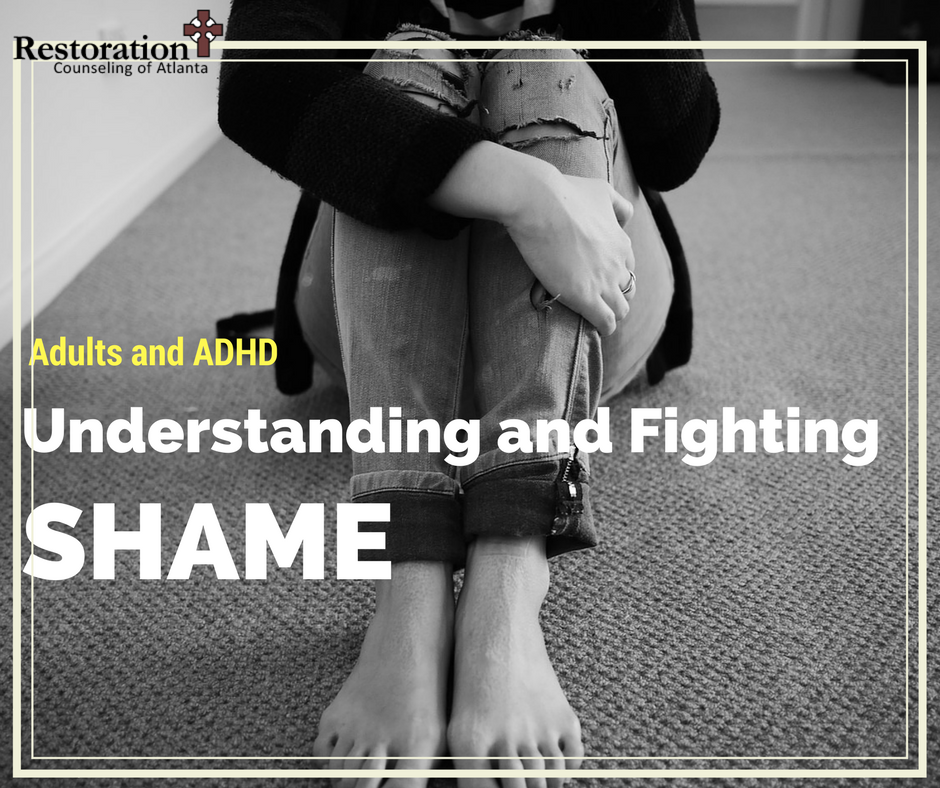ADHD in Adults: Understanding and Fighting Shame
By: Jared Pogue, MEd, LAPC
Adults with ADHD are often confused as to why they constantly struggle at work and at home. Unremitting forgetfulness gnaws at them like a dripping faucet and brings with it an exponentially expanding sense of frustration that eventually leaves them feeling as though they were somehow broken. What may seem like mere “scatter-brained” tendencies begins to take a heavy toll in their life. Bills are accidentally left unpaid, labyrinthine mood swings threaten their effectiveness at work and their job security, and any promise to just “do better next time” is continually left unfulfilled despite their best laid plans.
Adults with ADHD, especially if they are unaware that they have ADHD, can also suffer from a powerful and confusing sense of shame. They are adorned with a discomfiting scarlet letter that accuses them of being worthless or “less than” their peers, co-workers, and friends. Besides being the punchline of every joke, they are much more likely to see themselves as personally deficient in character instead of seeing themselves as someone with a legitimate need for trained assistance. It is the job of the medical professional, therapist, and surrounding community to encourage these individuals and to remind them that their problems are not to simply be viewed under the microscope of personal character deficiency, but rather these problems are to be examined within a bigger picture that must be viewed in its totality in order to alleviate the pangs of misunderstanding.
You can help someone suffering from ADHD with a few simple actions:
- First ask yourself if the person in question fits into the category of ADHD. This will be apparent when their struggles go beyond one area of their life. If the problem exists only at home and never at work, there may be a better explanation than ADHD. Someone who truly suffers from ADHD will be showing signs everywhere, even if they are not upfront about every area of their struggles.
- Look outside of the primary problem for ADHD. Adults with ADHD have a higher likelihood of struggling with issues like substance abuse. Don’t simply take on the substance abuse, but also look deeper into the person to check for other areas where ADHD might be running the show.
- Continually remind them that ADHD is not a mark of shame and it doesn’t define their worth as a person. Their minds will constantly want to tell them otherwise so revisit this step often.
- Encourage them to get a formal diagnosis behind them. Even if they are not interested in getting medication, a formal diagnosis can still get them some much needed tools and resources that they may have been previously unaware of. This diagnosis can be the difference between keeping a job and being fired.
- Let them know their options when it comes to getting their life under control. Explain in detail the medical, the psychological, and the spiritual aspects of managing ADHD.
- Self-managmenet techniques (i.e. setting a timer for accomplishing specific tasks or using a journal to track their effectiveness when executing plans) and teaching them how to look at themselves with self-compassion will go a long way. Helping to manage the ADHD symptoms by naming them and teaching the adult to recognize that symptoms can be controlled will be the bedrock of change.
- Finally, encourage them to continually seek community support. Community support, like a church, can be a much needed source of comfort and empowerment for dealing with the struggles of ADHD across a lifetime.

